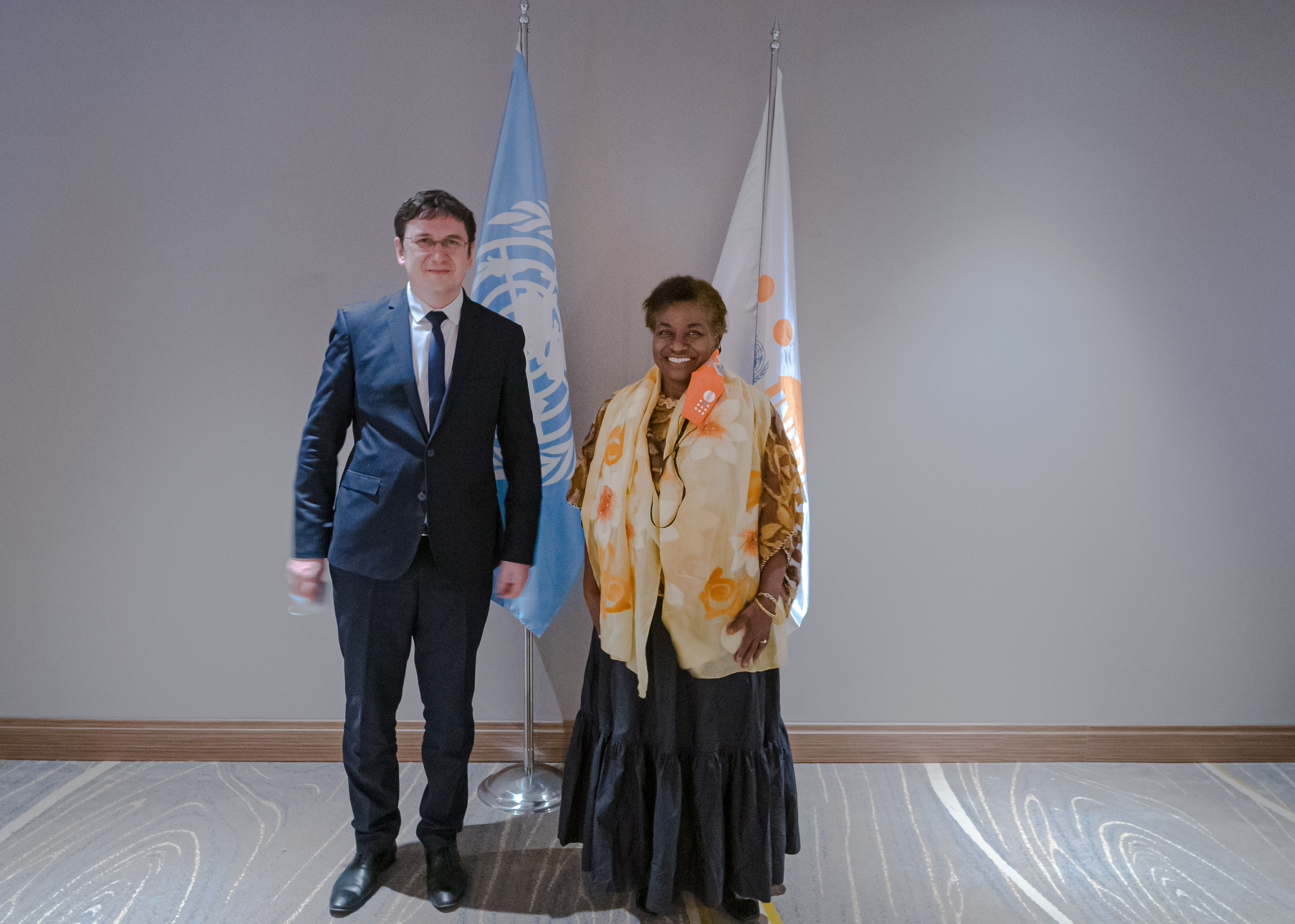2 December, Sofia, Bulgaria 2021 - The demographic situation in the Republic of Moldova was discussed by United Nations Under-Secretary-General and Executive Director of the United Nations Population Fund (UNFPA), Dr. Natalia Kanem and Minister of Labour and Social Protection of the Republic of Moldova, Marcel Spatari. The bilateral meeting took place during the Ministerial Conference ‘Shaping Europe’s Demographic Future’, organised by the Bulgarian Ministry of Foreign Affairs and Ministry of Labour and Social Policy, and UNFPA on 1-2 December in Sofia, Bulgaria.
The conference tackles demographic changes in Europe, such as population ageing, low fertility, youth migration, and identifies ways of transforming them into opportunities. The Republic of Moldova is represented by a delegation led by Marcel Spatari, Minister of Labour and Social Protection, Aliona Cretu, Head of Demographic Policy Division, Simon Springett, UN Resident Coordinator in Moldova and Eduard Mihalaș, Program Analyst at UNFPA Moldova.

During the bilateral meeting with UNFPA Global Director, our delegates discussed a number of issues related to the demographic vision of the Republic of Moldova, including the development of a demographic policy based on data and people’s needs, and their mainstreaming in national development programs in order to enhance the country’s demographic resilience.
The UNFPA Director appreciated the model selected by the Republic of Moldova, envisaging a shift from demographic security, based on the number of population, to demographic resilience, based on the rights and individual needs of each person.
‘Demographic changes should not be viewed as a crisis, as many tend to, but rather as an opportunity. Addressing the demographic changes should focus on the quality of people’s life, rather than on their number. The long-term solutions are based on the rights and individual needs of each person’, she stated.
Natalia Kanem also appreciated the participation of the Ministry of Labour and Social Protection in conducting the most complex demographic survey — Generations and Gender — on a sample of 10.000 people, the outcomes of which will be presented next week in Chișinău and will inform the future demographic resilience policies of the Republic of Moldova. At the same time, Kanem appreciated the national efforts to promote intergenerational dialogue, active ageing and family-friendly workplace policies.
In his turn, Minister Marcel Spatari reiterated Moldova’s commitment to achieve the country’s demographic vision, to ensure the rights of each person, and to accelerate family support programs so that families can have the desired number of children, by promoting gender equality, creating family-friendly workplaces and early childcare infrastructure, further developing active ageing programs, digitalising the older people and other actions.
The Ministerial Conference ‘Shaping Europe’s Demographic Future’ runs on 1-2 December in Sofia, Bulgaria, both online and face-to-face, convening over 600 high level government representatives, opinion leaders and experts from Europe and Central Asia. The conference will kick of the Decade for Demographic Resilience 2022-2032 and set up the Sofia Alliance — a community of practicians led by member countries, intended to facilitate the exchange of experience and provide expertise and technical assistance in order to strengthen the demographic resilience in the region.
The event can be accessed here: https://www.youtube.com/watch?v=lVY729n4p0E
Contact person:
Irina Lipcanu, Communication Analyst UNFPA Moldova, tel. 069162304
Nata Sarioglo-Chivriga, Communication, Population and Development Consultant, UNFPA Moldova, tel.78835845


